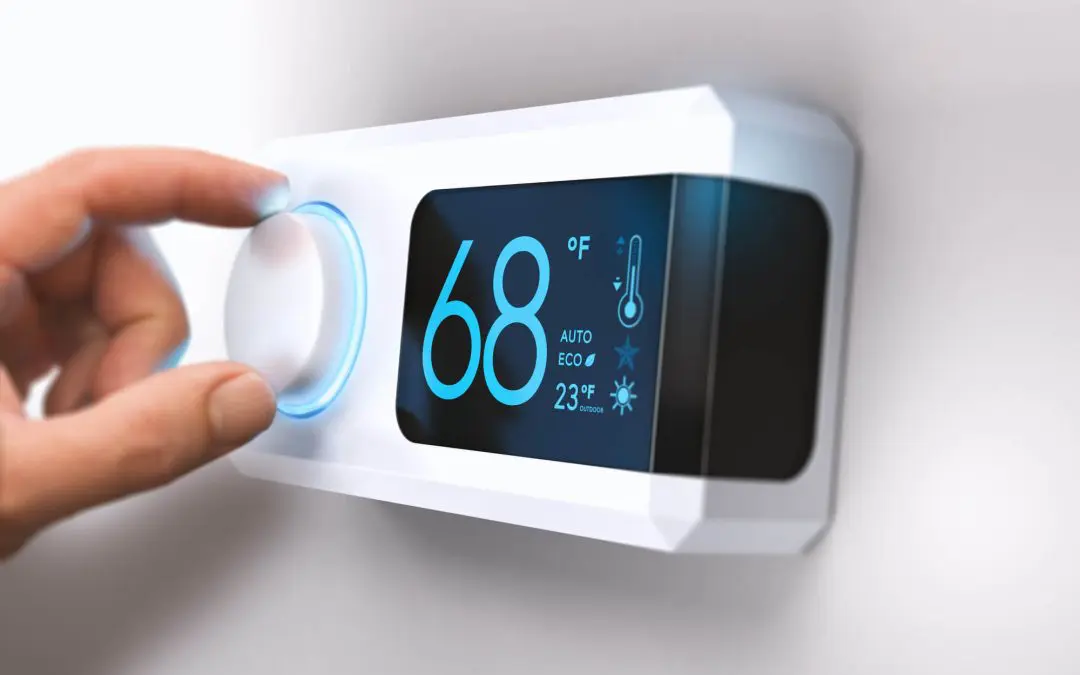As summer temperatures rise, keeping your home cool becomes increasingly expensive. However, several strategies can help you reduce home cooling costs without sacrificing comfort. Here are some effective methods to help you reduce home cooling costs and save on your energy bills during the hotter months.
Optimize Your Thermostat Settings to Reduce Home Cooling Costs
One of the simplest ways to reduce cooling costs is to adjust your thermostat settings. Setting your thermostat a few degrees higher when you’re not home or at night leads to significant savings. Consider investing in a programmable or smart thermostat that automatically adjusts the temperature based on your schedule and preferences.
Use Fans to Enhance Airflow
Ceiling, floor, and oscillating fans can help circulate cool air throughout your home, making it feel cooler without lowering the thermostat. In addition to your central cooling system, fans can provide a wind-chill effect, making the room feel up to 4 degrees cooler. Remember to turn off fans when you leave the room to save energy.
Reduce Home Cooling Costs by Improving Home Insulation
Proper insulation is crucial for maintaining a consistent indoor temperature. Ensure that your home is well-insulated, particularly in the attic and walls. Adding insulation or upgrading existing insulation can prevent cool air from escaping and hot air from entering, making your cooling system more efficient.
Seal Windows and Doors
Air leaks around windows and doors can let cool air escape and hot air enter your home, making your cooling system work harder. Use weather stripping, caulk, or sealant to close gaps and prevent air leakage. This simple step can improve your home’s energy efficiency and reduce cooling costs.
Use Window Treatments
Window treatments such as blinds, shades, and curtains can help block out the sun’s heat. During the hottest parts of the day, close your window treatments to keep the sun’s rays from warming your home. Reflective or blackout curtains are particularly effective at reducing heat gain.
Maintain Your Cooling System
Regular maintenance of your air conditioning system is essential for optimal performance. Change air filters monthly, clean the coils, and ensure adequate refrigerant levels. Scheduling an annual professional maintenance check can help identify and fix any issues that might reduce your system’s efficiency.
Utilize Natural Ventilation to Reduce Home Cooling Costs
Take advantage of cooler evenings and nights by opening windows to let in fresh air. This natural ventilation can help cool your home without using air conditioning. Just remember to close windows and blinds before the temperature rises in the morning to keep the cool air inside.
Upgrade to Energy-Efficient Appliances
If your air conditioning unit is old and inefficient, consider upgrading to a more energy-efficient model. Look for units with a high Seasonal Energy Efficiency Ratio (SEER) rating, which indicates better energy performance. While the initial cost may be higher, the long-term savings on your energy bills can be substantial.
Shade Your Home to Reduce Home Cooling Costs
Planting trees, installing awnings, or using exterior shades can help block the sun’s rays and reduce the heat entering your home. Strategic landscaping with trees and shrubs can provide natural shade and cooling, significantly reducing your reliance on air conditioning.
Reduce Heat-Generating Activities
Limit the use of heat-generating appliances like ovens, stoves, and dryers during the hottest parts of the day. Cook meals using a microwave or outdoor grill, and consider air-drying clothes instead of using a dryer. These small changes can help keep your home cooler and reduce the load on your cooling system.
By implementing these strategies, you can enjoy a comfortable indoor environment while keeping your energy bills in check. Some minor adjustments can add up to major savings over time, so don’t be afraid to start small.
FAQs
How can I tell if my home has air leaks?
You can perform a simple test by holding a lit incense stick near windows, doors, and other potential leak points. If the smoke moves erratically, there’s likely an air leak. Professional home energy audits can also identify leaks and recommend solutions.
How does landscaping affect home cooling costs?
Strategic landscaping, such as planting trees and shrubs around your home, can provide natural shade and reduce heat gain. Green roofs and vertical gardens can also insulate and cool your home by absorbing heat.
How often should I change my air conditioner’s filter?
It’s recommended that you change your air conditioner’s filter every 1 to 3 months, depending on the type of filter and the level of use. Regular filter changes ensure optimal cooling system performance and efficiency.
How do energy-efficient windows contribute to lower cooling costs?
Energy-efficient windows, such as double-pane or low-emissivity (Low-E) windows, reduce heat transfer, keeping your home cooler in the summer. They block UV rays, minimize heat gain, and help maintain a stable indoor temperature.
Home Inspectors of Columbus provides inspections to homebuyers and sellers in the Chattahoochee Valley of Georgia. Contact us to request an appointment for our services.

